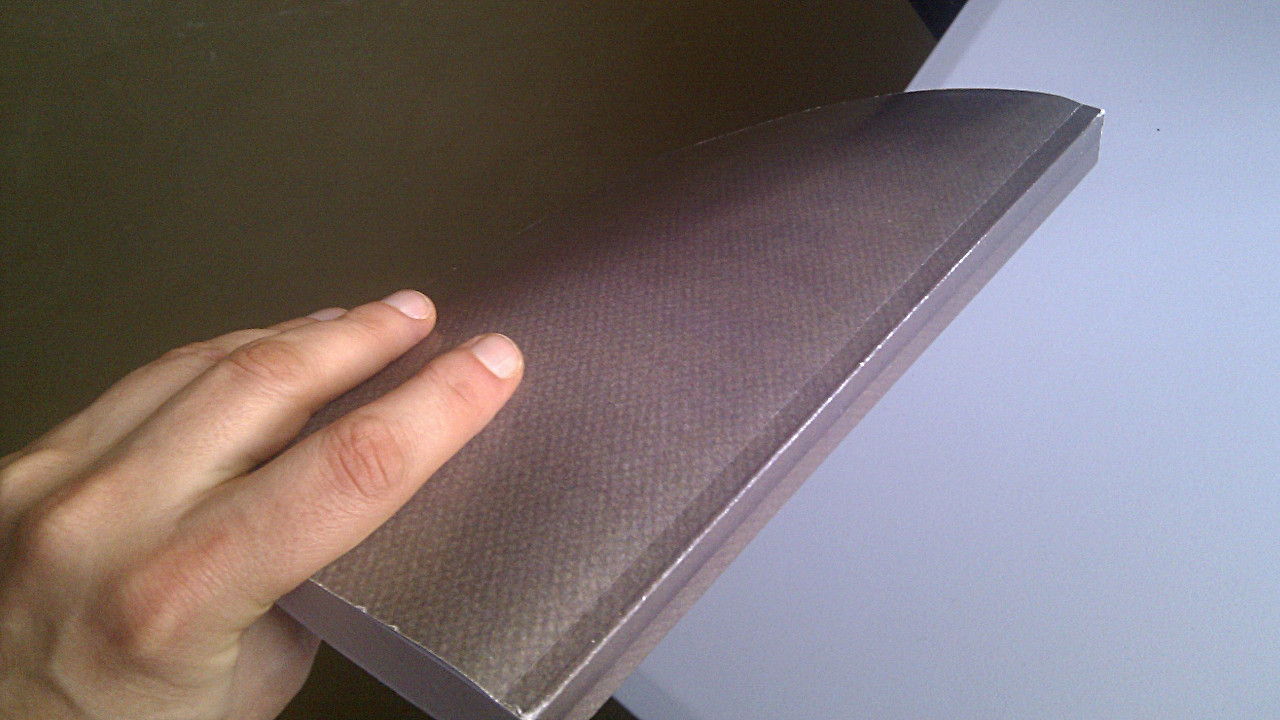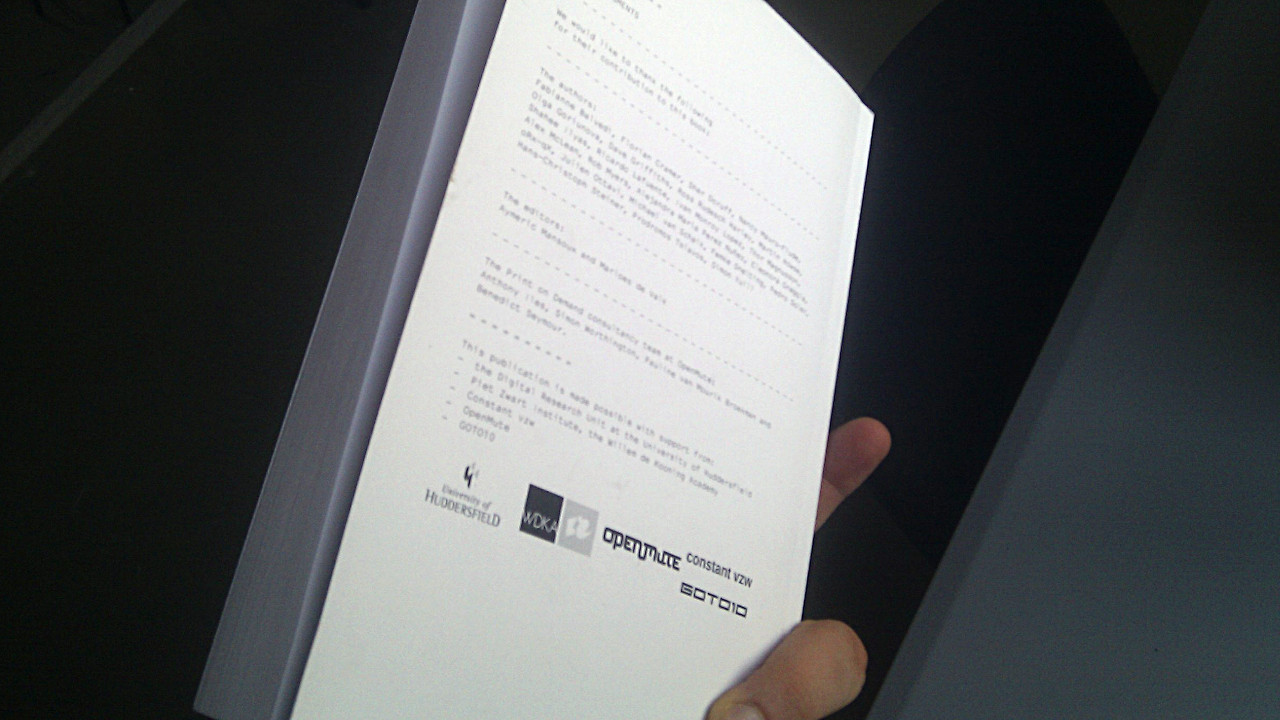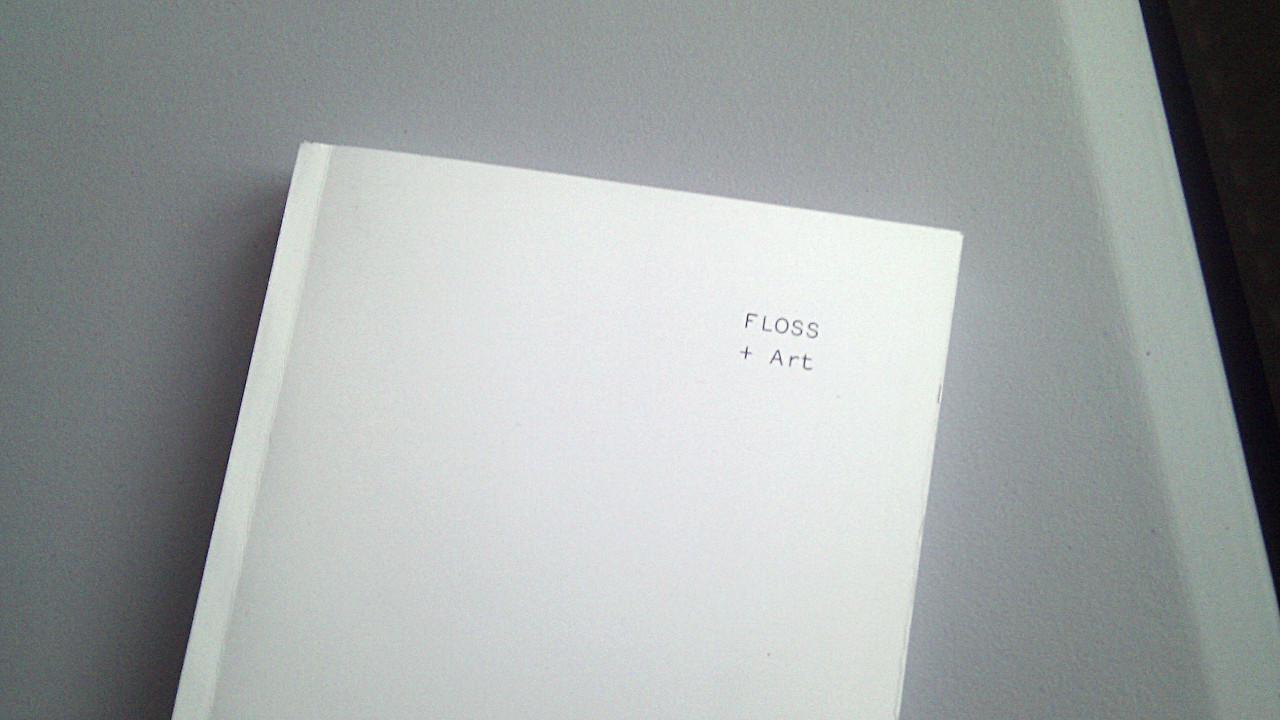
Last week I was invited by Jean-Philippe Halgand to give a talk and some workshops as part of his post-média course at the School of Fine Arts in Bordeaux. I will probably come back to what I did there in another post, most probably to talk about the secret pasta sauce workshop. However, I first wanted to quickly write about an unexpected encounter with local copies of the books FLOSS+Art and SKOR Codex!
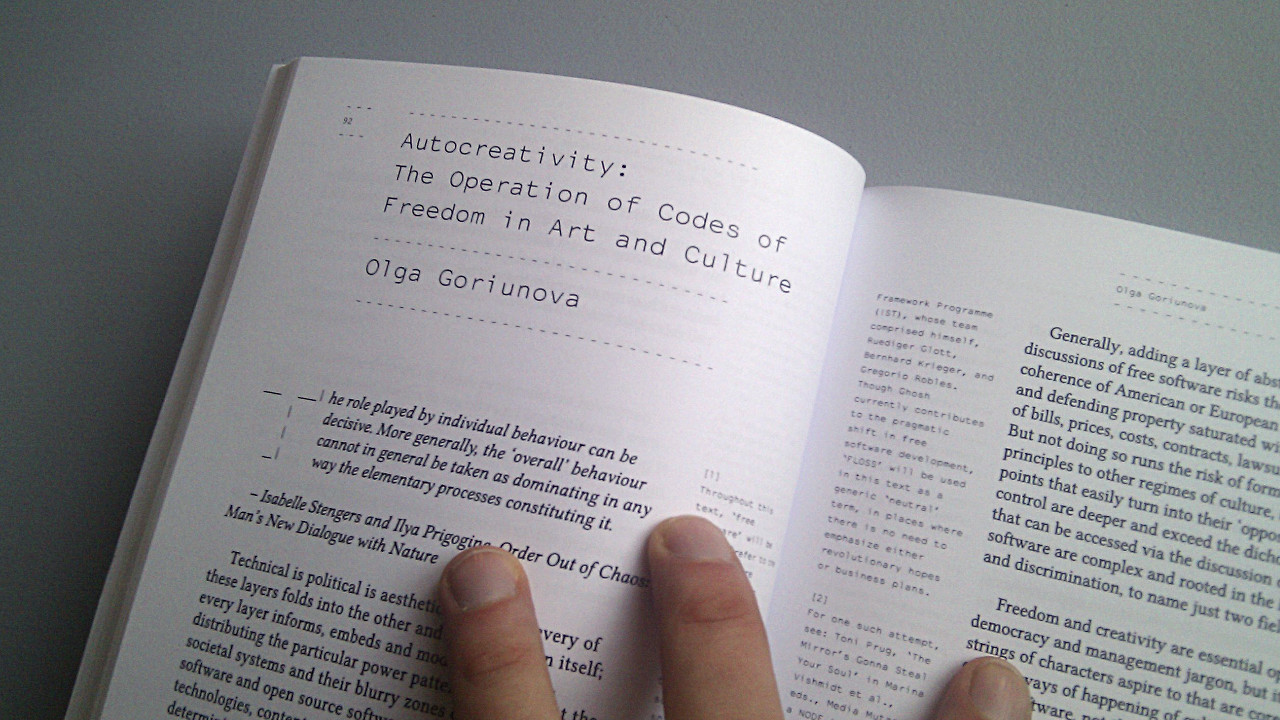
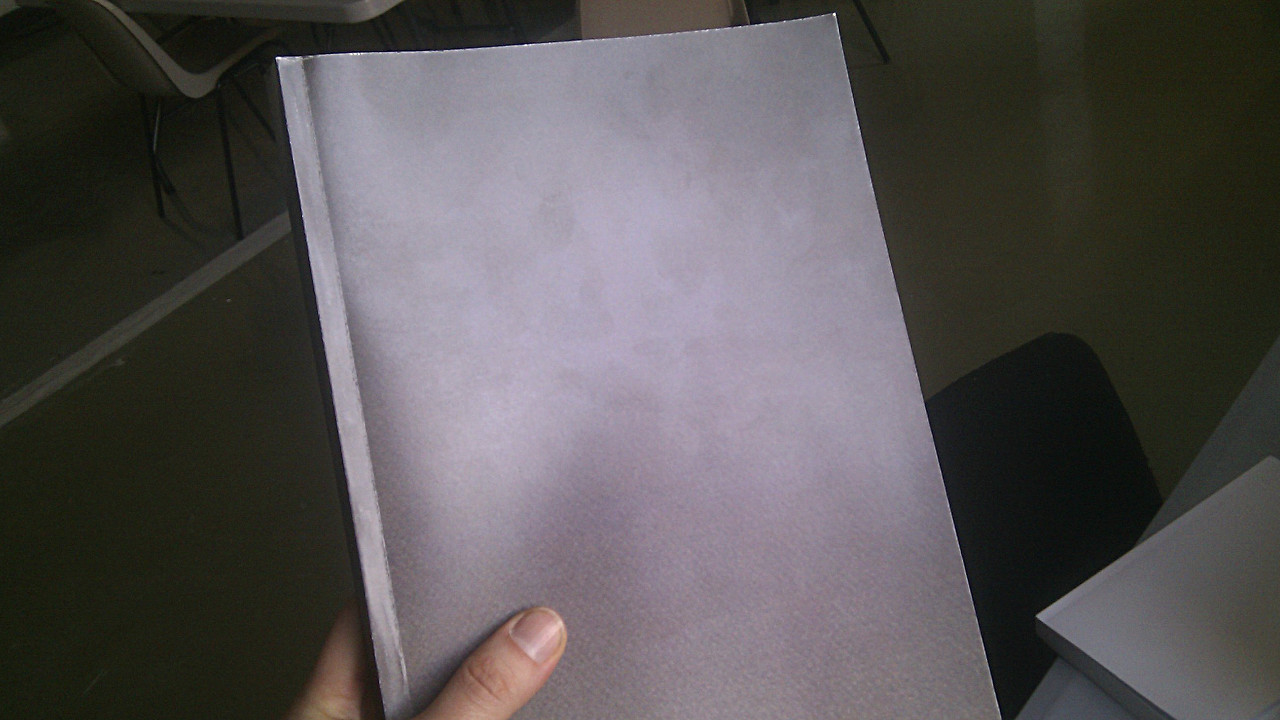
For those who do not know, these two book projects have been released under several free culture licenses and have been published digitally without strings attached. Today they remain accessible mostly under this form as it is a convenient way to consume and share them. That said, they also exist as physical objects. This aspect serves specific functions. For instance FLOSS+Art can be purchased on Amazon if you want to get a printed book and enjoy the work that OSP did on the design of the book beyond the screen, while the SKOR Codex exists essentially as eight artist’s books, carefully crafted for long term conservation so as to slowly find their ways into national libraries and archives across the world.
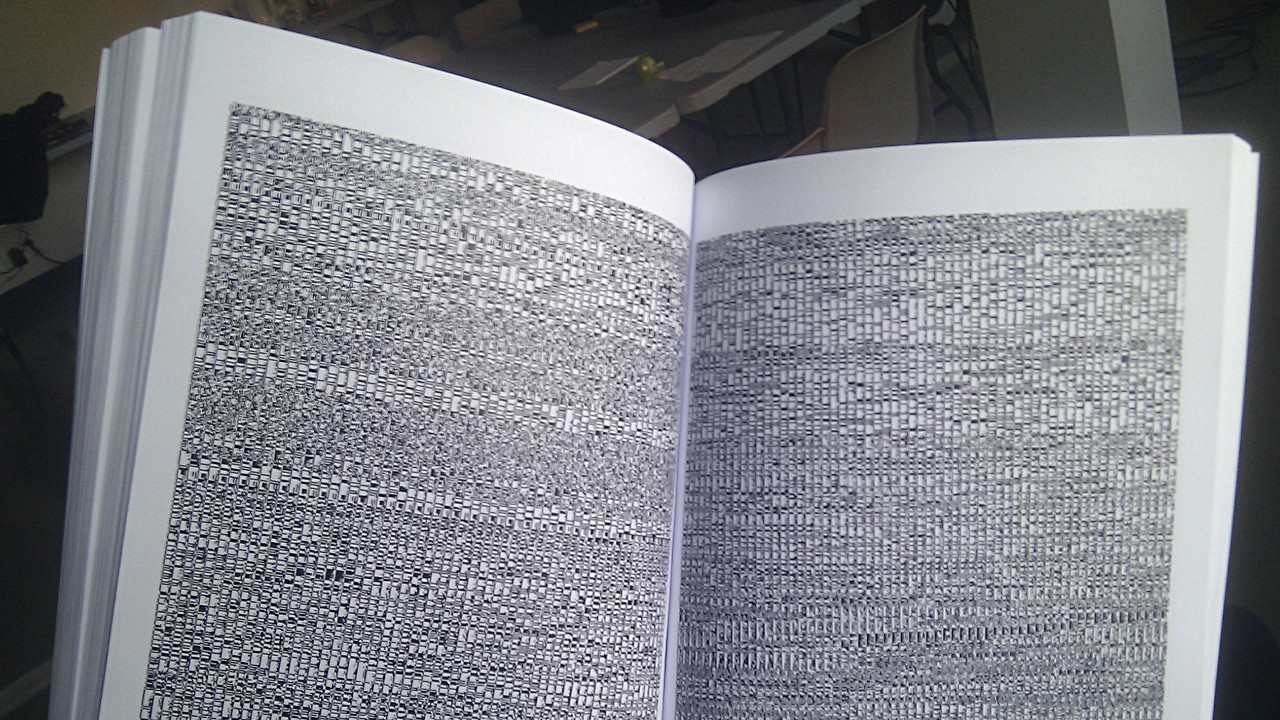
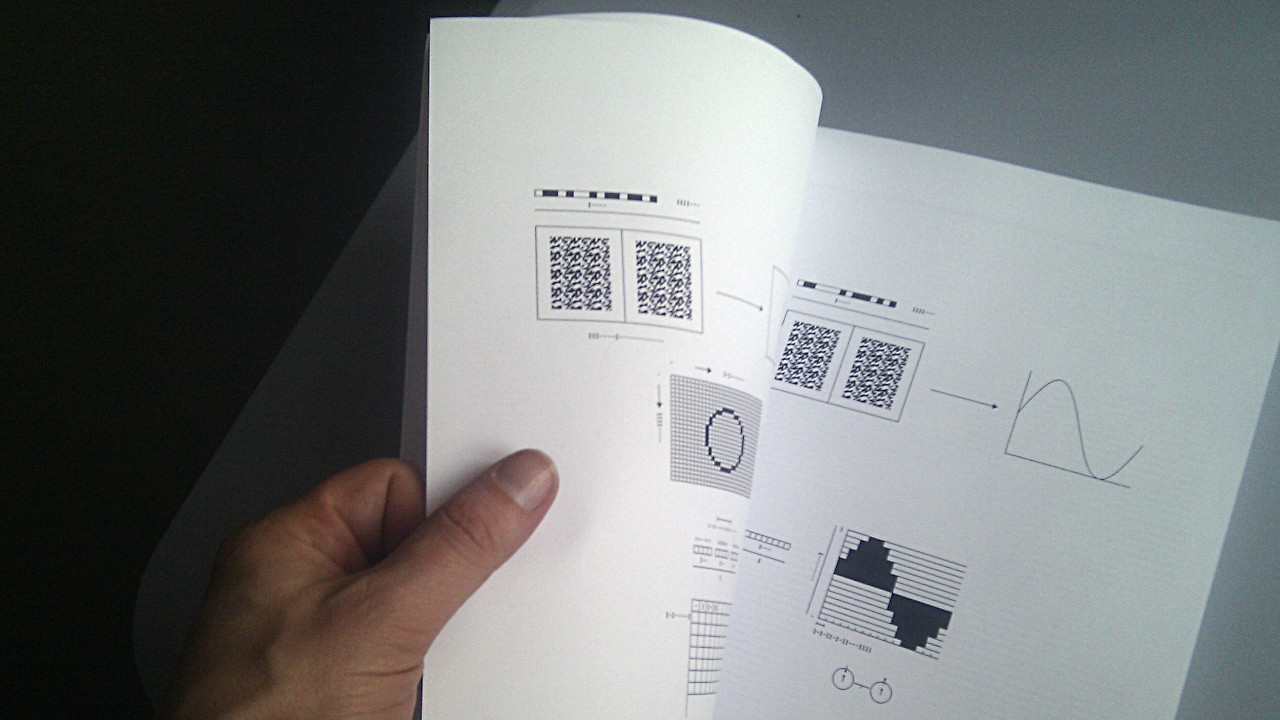
Usually these two forms, the book as digital data and the book as physical object, remain separated at birth and rarely connect back. On top of that releasing something as an electronic publication such a regular PDF file is a process hard to track as you will rarely be able to know what happens to such files. That’s why I was very much surprised to hold in my hand copies of these projects and basically see that someone took the effort and saw the value to reunite the digital and the physical. So it is in such a spirit that Jean-Philippe has started some sort of bootleg book library for his students so as to bring context and support to his course and lab, and that as part of the catalogue were the two projects cited above. The great thing about this library is that these items have been recreated in collaboration with the digital printing press department of the school and this whole manufacturing and selection process really highlight the value of digital data as a transitional object and not necessarily an end-product. Whether it is for a free culture book, like FLOSS+Art, or a work on the topic of archiving and conservation of culture, like the SKOR Codex, such productions suddenly take a whole different meaning and potential within this bootleg library, as they reveal the unofficial, “un-amazonesque,” ecosystem surrounding the production, distribution and consumption of books. Thanks!
